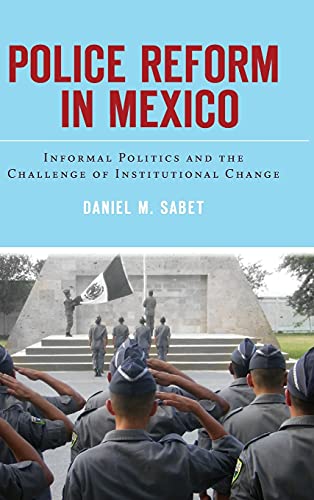

Most ebook files are in PDF format, so you can easily read them using various software such as Foxit Reader or directly on the Google Chrome browser.
Some ebook files are released by publishers in other formats such as .awz, .mobi, .epub, .fb2, etc. You may need to install specific software to read these formats on mobile/PC, such as Calibre.
Please read the tutorial at this link: https://ebookbell.com/faq
We offer FREE conversion to the popular formats you request; however, this may take some time. Therefore, right after payment, please email us, and we will try to provide the service as quickly as possible.
For some exceptional file formats or broken links (if any), please refrain from opening any disputes. Instead, email us first, and we will try to assist within a maximum of 6 hours.
EbookBell Team

4.0
46 reviewsThe urgent need to professionalize Mexican police has been recognized since the early 1990s, but despite even the most well-intentioned promises from elected officials and police chiefs, few gains have been made in improving police integrity.
Why have reform efforts in Mexico been largely unsuccessful? This book seeks to answer the question by focusing on Mexico's municipal police, which make up the largest percentage of the country's police forces. Indeed, organized crime presents a major obstacle to institutional change, with criminal groups killing hundreds of local police in recent years. Nonetheless, Daniel Sabet argues that the problems of Mexican policing are really problems of governance. He finds that reform has suffered from a number of policy design and implementation challenges. More importantly, the informal rules of Mexican politics have prevented the continuity of reform efforts across administrations, allowed patronage appointments to persist, and undermined anti-corruption efforts.
Although many advances have been made in Mexican policing, weak horizontal and vertical accountability mechanisms have failed to create sufficient incentives for institutional change. Citizens may represent the best hope for counterbalancing the toxic effects of organized crime and poor governance, but the ambivalent relationship between citizens and their police must be overcome to break the vicious cycle of corruption and ineffectiveness.